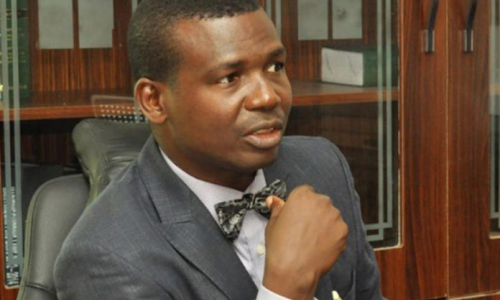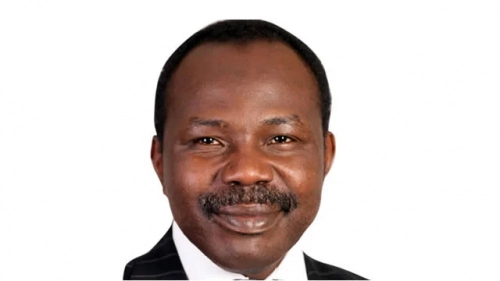Is Federalism Dead?

By Ebun-Olu Adegboruwa, SAN
Federalism is a system of government that guarantees the distribution of power between the constituent units. According to the learned authors of Encyclopedia Britannica, ‘federalism is a mode of political organization that unites separate states or other polities within an overarching political system in a way that allows each to maintain its own integrity. Federal systems do this by requiring that basic policies be made and implemented through negotiation in some form, so that all the members can share in making and executing decisions.’ Nigeria proclaims itself to be operating a federal system of government, at least in principle. To this end, section 2 of the Constitution of the Federal Republic of Nigeria provides thus:
“2. (1). Nigeria shall be one indivisible and indissoluble sovereign state to be known by the name of the Federal Republic of Nigeria.
2. (2). Nigeria shall be a federation consisting of States and a Federal Capital Territory.”
The title and the name of the Constitution on their own give a graphic understanding of the intentions of the drafters of the Constitution when they christened it The Constitution of the FEDERAL Republic of Nigeria. To all intents and purposes therefore, Nigeria is a federation, more like an amalgam of several units. Section 3 of the Constitution defines the federating units to be the thirty-six States, the Federal Capital Territory, Abuja and the seven hundred and sixty local government areas and six area councils. Did these federating units ever sit down together to discuss and negotiate the terms of their existence as a federation? The answer is no, they never did. This self-styled ‘federal’ Constitution would then proceed in its subsequent sections to centralize the federation, by concentrating power on the federal government of Nigeria, leaving the other constituent units, that is the states and the local government areas totally stranded. This was what the current President promised to redress.
President Bola Ahmed Tinubu teamed up with other patriots to form the National Democratic Coalition, NADECO. Their aim was to resist military dictatorship and to see to it that democracy holds sway in Nigeria. Beyond NADECO, Tinubu presented himself as an apostle of federalism in all his speeches, campaigns and indeed his actions. Subsequently, Tinubu aligned with the Social Democratic Party, got elected as a Senator although his tenure was again aborted by the military. Back from exile, Tinubu aligned with Afenifere leaders to form the Action Congress which could not endure for long, leading to the subsequent formation of the All Progressives Congress. When he was in the opposition, Tinubu’s main song was true federalism, state police and devolution of powers. When his party finally captured power in 2015, Tinubu was still pursuing true federalism but did nothing within his party to actualize it. As if to put him on the spot, politicians honoured Tinubu with the title of National Leader of APC, through which he kept on his campaign for fiscal federalism and devolution of powers with no concrete action. On May 3, 2011, Tinubu stated that ‘fiscal federalism is the panacea for power struggle. Hear him:
“The federal government is taking too much and that is why there is always the struggle for power at the centre. Bring money to the States; if you are asked to do something for the country, you must give the money and the resources to do it. We have been talking about this true federalism, fiscal federalism for years, we did nothing about it.”
On May 17, 2017 in Abuja, Tinubu made an open declaration for true federalism. He was a guest at the 91st Anniversary of Daily Times and Times heroes awards. On September 26, 2020, Tinubu stated that without true federalism, Nigeria’s unity will constantly be shaken. How prophetic indeed. Tinubu was speaking at the public presentation of the autobiography of Afenifere leader, Pa Reuben Fasoranti. He stated as follows:
“Indeed, some of us have been and remain die-hard advocates of true federalism. We have striven in and out of public office for its implementation as a sine-qua-non for a peaceful, progressive and united Nigeria. On this score, I remain unshakable in my commitment to the idea and ideals of true federalism without which our nation’s unity would constantly be shaken. I enjoin us all to continue to hoist the flag of true federalism which our founding fathers fought for in order to leave an enduring legacy for the future generation of Nigerians. That is the path to true nationhood.”
One could excuse Tinubu for campaigning for federalism in 2020 when he had no means to achieve it, even as National Leader of the ruling party. But that could not be said of him post May 2023, when Tinubu became the President and Commander-in-Chief of the Armed Forces of Nigeria, with all the powers and authority that the office commands. The President was silent in his inauguration speech on the ideals that he swore to die for and as if sensing some lull, late Governor Rotimi Akeredolu, SAN, as Chairman of the South-West Governors’ Forum sent a bold message to the President. Let me quote him.
“The new Administration has its jobs well defined, the very first being the urgent need to assist in birthing a new constitutional order which takes into account, keenly, the principles of federalism. The successes recorded at fixing the basic defects of the 1999 Constitution, as Amended, will determine, largely, the pattern and the depth of the deliberative governance designed to achieve development. All existential issues will be addressed realistically. We must encourage the new Government to tread this honourable path. The new thinking should anticipate active participation by the constituent units of the Federation as coordinate partners in revenue generation and the security of lives and property of the citizenry.”
Why was President Tinubu agitating for TRUE federalism? Simply because Nigeria named itself a Federation but it was not operating a federal system of government. The same Constitution that termed itself ‘federal’ proceeded in its subsequent sections to centralize the police, the armed forces and any and all things security. It created a command structure for the judiciary, grabbed all revenue for the federal government and castrated the rest of the constituent partners. Many who supported President Tinubu and APC for the presidency did so with the hope that once a federalist gets to power, Nigeria will become a true federation. They have been proved wrong. With power, President Tinubu has suddenly discovered that it is possible for the South West region to produce the President who is also the Commander-in-Chief of the Armed Forces and the substantive Minister of Petroleum, the Chief Justice of Nigeria, the EFCC Chairman, the Governor of Central Bank, the Minister of Finance, the Comptroller-General of Immigration, the Comptroller General of Customs, the Chief of Army Staff, the Inspector-General of Police, the Chairman of NNPC and a host of other federal appointments. What President Tinubu is telling Nigerians presently is that once you are in charge of the federal system, the Federation will favour you and there will be no need for true federalism. It is a battle for those who are outside the federal system. This is the true concept of ‘EMILOKAN’ (it is my turn), a new-found solution to federalism, the Nigerian way.
In truth however, President Tinubu was correct in all his pre-election analysis of the danger of running a unitary federal system of government. The imbalance will lead to endless agitations and general apathy to governance. There is great danger in this convoluted arrangement and until and unless it is redressed, Nigeria cannot survive a command system where the weakest unit has become the one distributing wealth to the stronger partners. President Tinubu was instrumental to the ideas behind the famous APC Manifesto which was released in 2015 when the opposition was seeking power. Paragraph 1 of the said Manifesto states boldly that APC will “initiate action to amend our Constitution with a view to devolving powers, duties and responsibilities to states and local governments in order to entrench TRUE FEDERALISM and the Federal spirit.” (Emphasis supplied). There is no running away from this stark reality, it is the way to go. If it is the thinking of President Tinubu that the attainment of power has eclipsed the need for true federalism, then he should be well prepared to lead a fractured nation.
By now, true and genuine efforts should have been initiated to achieve restructuring, through the convocation of all relevant stakeholders from the constituent units for a dialogue on the ways and means of attaining true federalism. The agitation for federalism should not die simply because one of the proponents of that system has attained his lifelong ambition. Nigeria deserves true federalism now.


